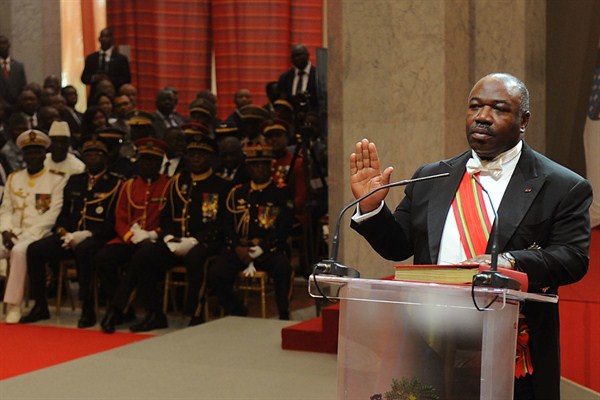Last week, a significant number of Gabon’s top politicians suddenly found themselves out of work. On April 30, the country’s Constitutional Court delivered a surprise ruling that dissolved the National Assembly, the lower house of Gabon’s parliament, and called for the government to step down. Prime Minister Emmanuel Issoze-Ngondet complied the next day, issuing a letter of resignation on behalf of himself and his ministers.
At first glance, the ruling appeared to be a straightforward rebuke of the government’s failure to hold legislative elections, which are now nearly 18 months overdue. “It is clear that the government has not been able to fulfill the tasks assigned to it,” Marie-Madeleine Mborantsuo, the president of the Constitutional Court, said in a statement.
But upon closer inspection, the situation becomes murkier, as is often the case in Gabon’s tangled politics. The most obvious indication that other dynamics might be at play is the fact that the ruling appeared to benefit President Ali Bongo in every way, presenting him with yet another opportunity to try to turn the page on a political crisis that stretches back to his highly dubious re-election two years ago.

